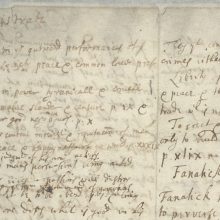
Photo from archive.org
even in the zenith of Owen’s career, shadows of defeat were never too far off the horizon. While charting Owen’s meteoric—and carefully calibrated and planned by Owen himself—rise from a… Click to show full abstract
even in the zenith of Owen’s career, shadows of defeat were never too far off the horizon. While charting Owen’s meteoric—and carefully calibrated and planned by Owen himself—rise from a country parson to the darling of the Cromwellian regime, Gribben offers sentences that are as pithy as are poignant in showing the grand plans of Owen, as he attempted great things for his God: “Owen’s grand if impolitic scheme reflected the art of the impossible” (154); or, regarding the waning of Owen’s influence with Oliver Cromwell, “Oliver Cromwell was dying, and Owen was slipping back into the experience of defeat” (179). If one is looking for a good book on Owen’s theology, this book is bound to disappoint, yet to be fair to Gribben, such was never his authorial intent. Yet if one is looking for a book on Owen’s career, simultaneously troubled and triumphant, marked by moments of glory as well as agony, and how a number of texts—especially his Parliamentary sermons—came to be published and what their immediate historical and intellectual contexts were, then it is hard to do better than Gribben’s account. It might not be systematic, but hardly anyone lives one’s life in a systematized fashion: certainly not the Calvin of England whose rise and fall could not have been charted by the most assiduous interpreters of divine providence.
Journal Title: Church History
Year Published: 2017
Link to full text (if available)
Share on Social Media: Sign Up to like & get
recommendations!